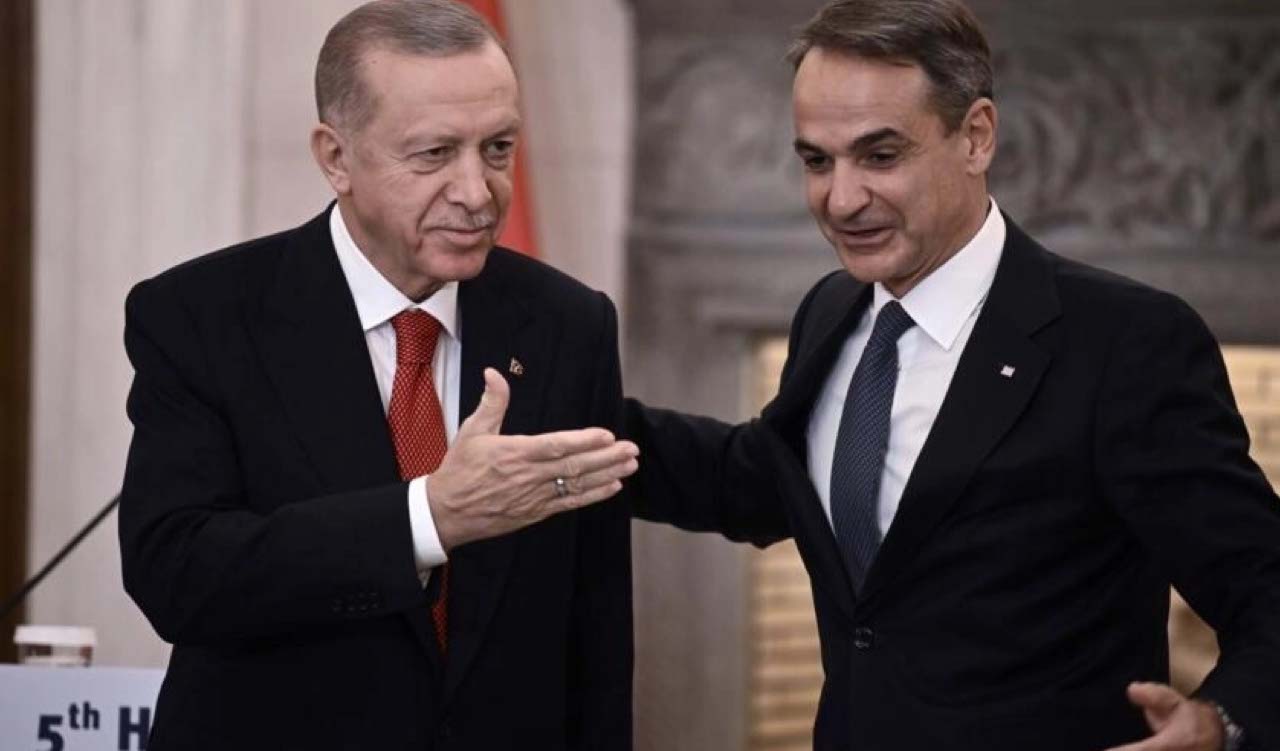Greece, Turkey vow to work on improving relations

Athens, Greece (AFP) - Greece and Turkey on Thursday restarted high-level talks to reduce chronic tensions in their relations as the Turkish president visited Athens for the first time in six years.
"There is no problem that cannot be solved between us," Recep Tayyip Erdogan said during a media appearance with Greek Prime Minister Kyriakos Mitsotakis, adding that he wanted to turn "the Aegean into a sea of peace and cooperation."
"We want to further develop the positive momentum in our relations," Erdogan said.
Erdogan was in Athens for the first time since 2017 after a long period of tension marked by disputes over migration, energy exploration in the Aegean and territorial sovereignty.
Erdogan had earlier questioned century-old treaties that set out Aegean sovereignty, and Turkish and Greek warplanes regularly engage in mock dogfights in disputed airspace.
The discovery of hydrocarbon resources in the eastern Mediterranean has further complicated ties, with Ankara angering Athens in 2019 by signing a controversial maritime zone deal with Libya.
Last year, Erdogan accused Greece of "occupying" Aegean islands and threatened: "As we say, we may come suddenly one night."
The tension prompted Mitsotakis to announce a military buildup in naval and air force equipment, and sign defensive agreements with France and the United States.
But relations have improved since February, when Greece sent rescuers and aid to Turkey after a massive earthquake killed at least 50,000 people.
On Thursday, Mitsotakis acknowledged that relations had been "dangerously threatened" in past years but were now on a "calmer path."
'Historic debt'
"I feel a historic debt to utilise the opportunity to bring the two nations side by side, as are our borders," Mitsotakis said.
The two leaders agreed on a roadmap for political dialogue, low-level fields of cooperation and confidence-building steps, the Greek prime minister said.
Greek and Turkish ministers held a meeting of the high cooperation council, a bilateral body that last convened in 2016.
"The fact that we are holding the high cooperation meeting today after seven years is a sign of our good will," Erdogan said.
"I think that we will not take such a break for the next meeting and that it would be beneficial to meet at least once a year," he added.
Mitsotakis said Athens had agreed with the European Union to grant seven-day visas to Turkish citizens to visit nearly a dozen Aegean islands.
Greece and Turkey also signed a non-binding declaration of friendship and will work towards doubling their bilateral trade to $10 billion (9.3 billion euros).
The declaration said the two states would refrain from aggressive statements and take steps to reduce military tension.
"We are two neighbouring countries that share the same sea, the same geography, the same climate and even the same culture in many areas," Erdogan said.
"While there may be differences of opinion even between two brothers, it is natural for there to be differences of opinion between two neighbours," he said.
Turkey has said that Greece unfairly regards the entire Aegean as a "Greek sea" in disregard of its own rights as a coastal state.
Athens says its only dispute with Ankara is over where to delimit the continental shelf -- the stretch of seabed close to its shores -- and exclusive economic zones.
"This is the only dispute that could be put to international arbitration, with international law and particularly the law of the sea always as the compass," Mitsotakis said.
